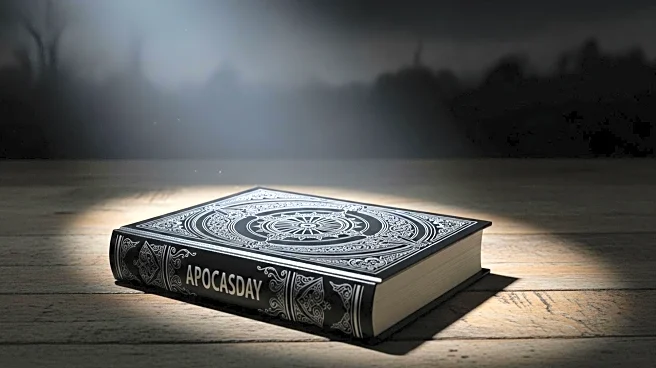What is the story about?
What's Happening?
Hungarian writer László Krasznahorkai has been awarded the Nobel Prize in literature, recognized for his challenging and apocalyptic narratives. Krasznahorkai's work is known for its complex sentence structures and themes that often explore the intrusion of sinister forces into communities. His novel 'Herscht 07769,' set during the coronavirus pandemic, follows the story of Florian, a gentle giant inadvertently supporting a neo-Nazi gang. The novel's exploration of obliviousness in the face of fascism and skepticism about violence's redemptive power likely resonated with the Swedish Academy. Krasznahorkai's literature, while daunting, is also infused with humor and a belief in the transformative power of art.
Why It's Important?
Krasznahorkai's recognition by the Nobel Prize highlights the global appreciation for literature that challenges readers and addresses complex themes. His work, often described as apocalyptic, offers a unique perspective on societal issues, including the rise of fascism and the search for redemption through art. This award may encourage more readers to engage with literature that pushes boundaries and provokes thought. It also underscores the importance of diverse narratives in understanding contemporary global challenges, potentially influencing literary trends and academic discourse.
What's Next?
Following the Nobel Prize win, Krasznahorkai's works are likely to see increased interest and readership. Publishers may focus on translating and distributing his novels more widely, making them accessible to a broader audience. Literary critics and scholars might delve deeper into his themes, exploring their relevance to current global issues. Additionally, Krasznahorkai's win could inspire other authors to tackle complex and challenging subjects, contributing to a richer literary landscape.
Beyond the Headlines
Krasznahorkai's literature not only challenges readers with its complexity but also offers a profound exploration of human resilience and the quest for meaning in a chaotic world. His emphasis on the power of art as a refuge and his humanist approach to storytelling provide a counterbalance to the darker themes in his work. This duality may lead to discussions on the role of literature in addressing existential questions and fostering empathy.

















